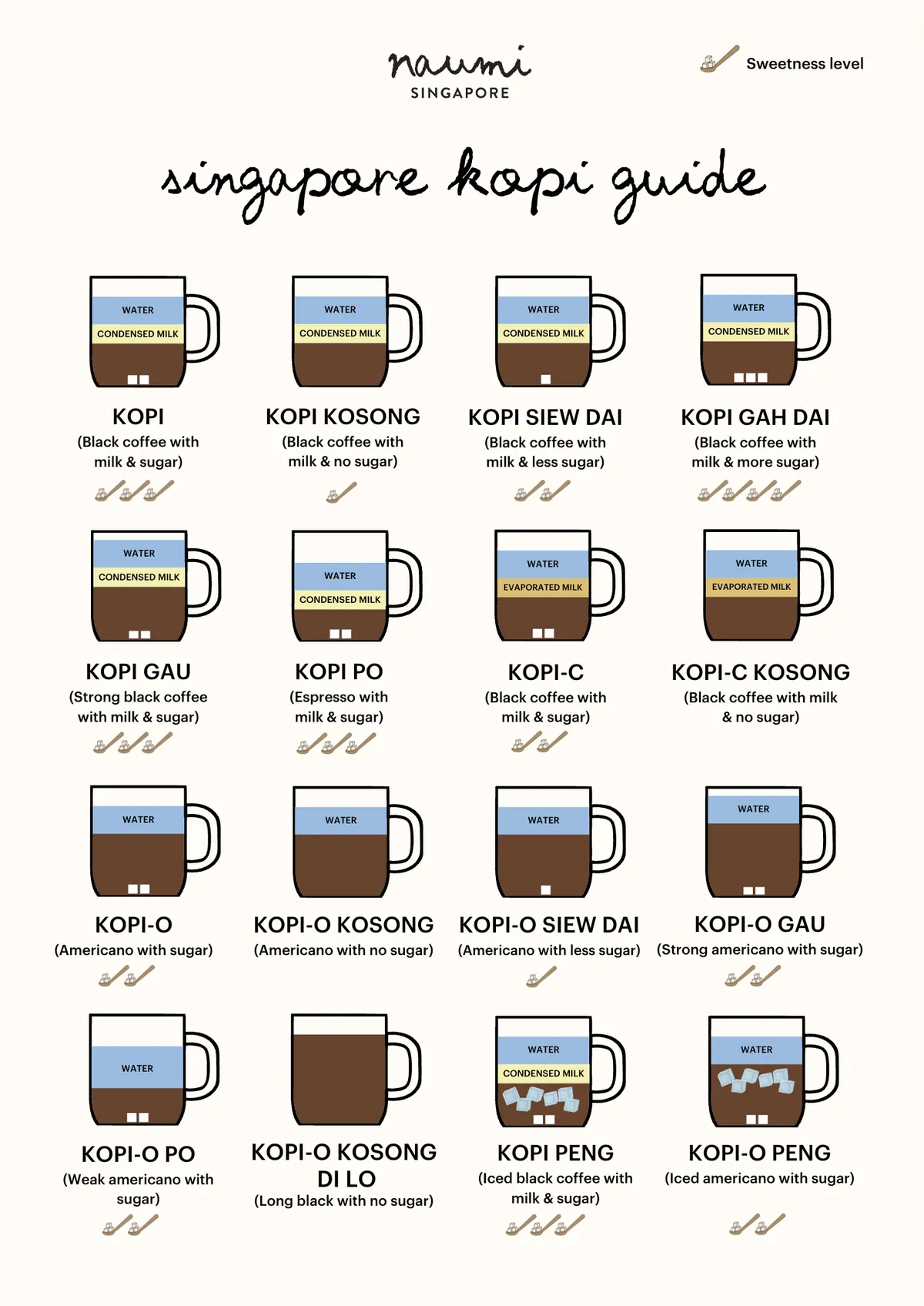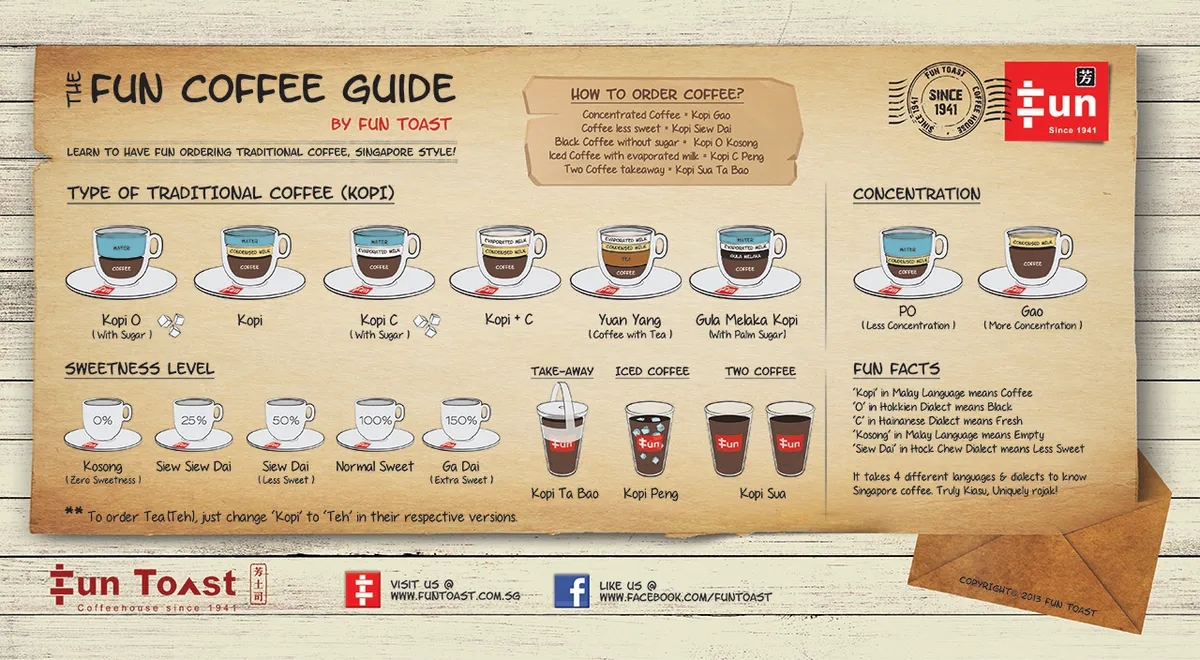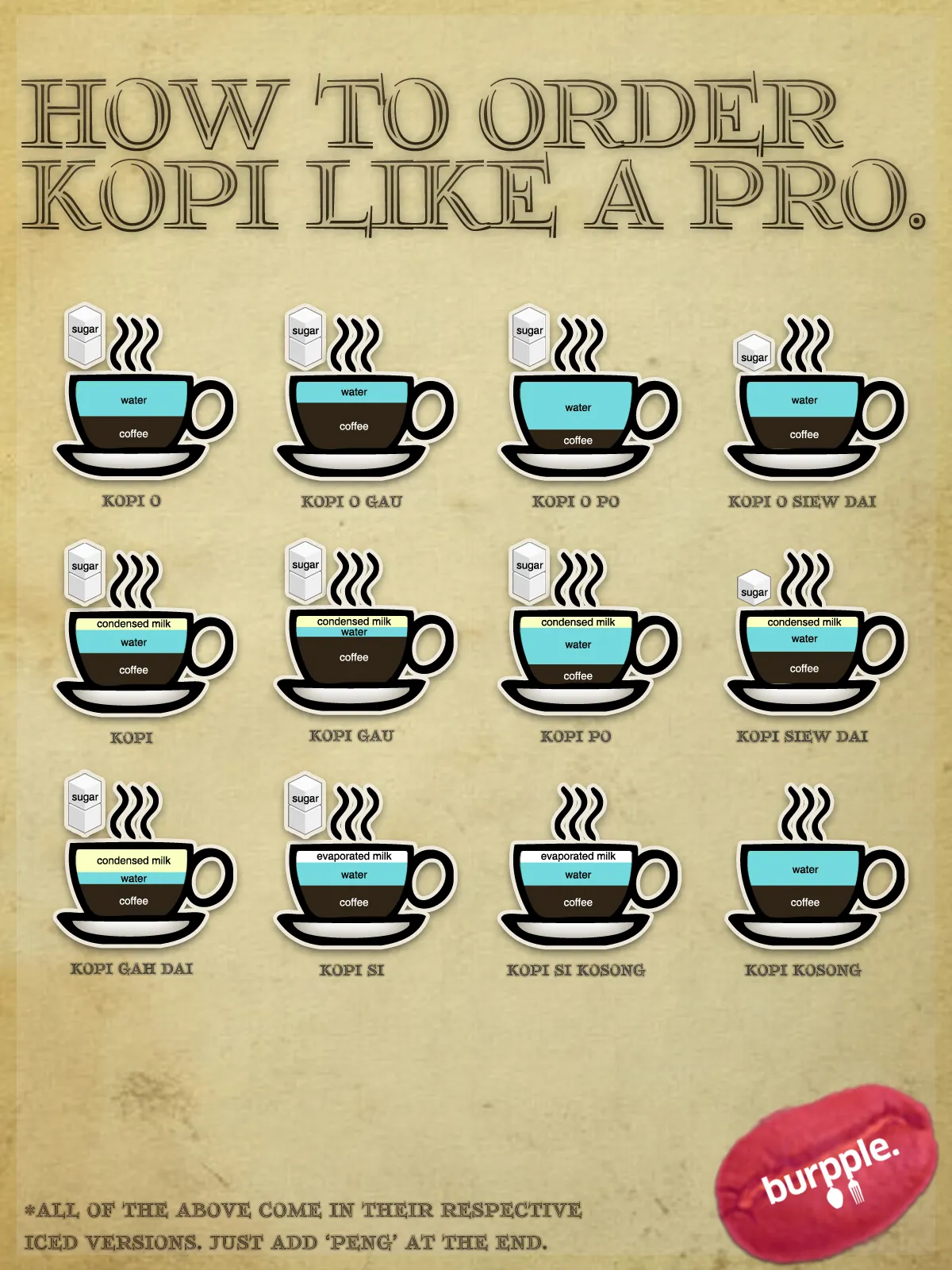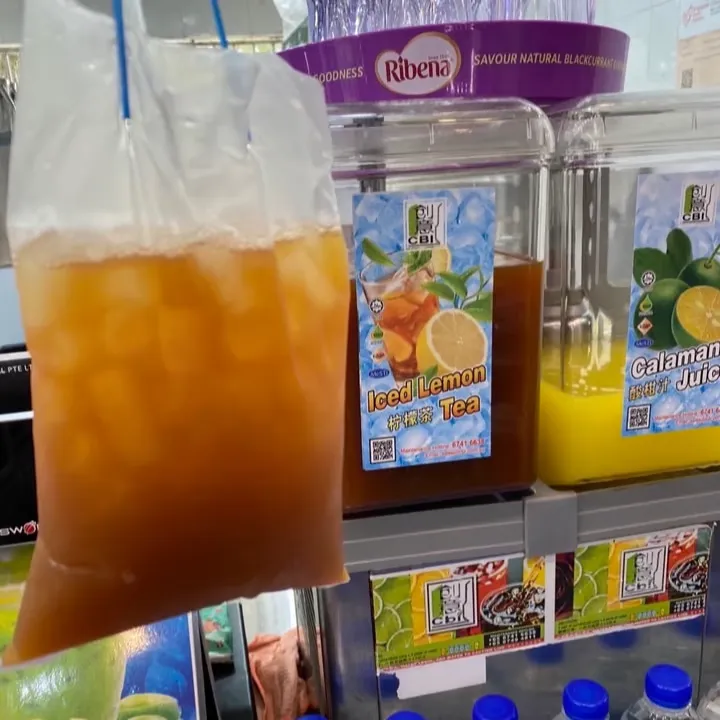Falsehoods Singaporeans believe about Kopi
In the spirit of articles like Falsehoods programmers believe about names, email and time, here's one on a non-programming topic: ordering Kopi in Singapore.
There are many "guides on how to order kopi" out there. Take a look at kopi.guide, or one of these infographics:



All of them are slightly inaccurate, and worse, promote the wrong mental model for how ordering kopi works.
Here are some common misconceptions.
Falsehood: There're only two base choices: kopi or teh
Okay this is a fairly obvious one, I can hear you saying "yah la there's also yuan yang what..".
Here are some other bases that are available at the average coffee stall:
milohorlicks
I've once heard someone ordering teh can milo - "can" (掺) means mixed. Shudders. Nice meh..?
Falsehood: There're only three milk choices: condensed milk, evaporated milk, or none
Or both, e.g. kopi gar c. gar means "add":
kopiis a kopi with condensed milkkopi cis a kopi with evaporated milkkopi gar cis a kopi with condensed milk + evaporated milk
Sometimes
kopiis served with both condensed and evaporated milk, à lakopi gar c. Thanks to u/catcourtesy for pointing it out!
Falsehood: There're only two thickness choices: bo and gao
You can say things like gao gao to mean "extra thick", or di loh (直落) for "straight pour", which basically means extraaaaaa thick.
For iced drinks, varying the thickness is usually done by adding more or less ice.
Falsehood: siu dai means "less sugar"
.. and neither does it mean "less condensed milk". It actually means "less sweet".
If the drink uses condensed milk as the sweetener, such as kopi siu dai or teh siu dai, then you'll get less condensed milk.
If the drink uses sugar as the sweetener, such as kopi o siu dai or teh o siu dai, then you'll get less sugar.
siu daiis Cantonese. The Chinese characters are "少底", which translates literally to "less bottom" or "less base".
Falsehood: kopi kosong doesn't exist
Ah-ha so if:
kopiuses condensed milk as the sweetenerkopidoes not contain any sugarkosongmeans "no sugar"
Then surely kopi kosong doesn't exist right?
So this applies to everything I've said, and everything that I'm about to say, but it really depends on the stall owner.
Yes, most stall owners will frown if you try to order that and ask if you mean kopi o kosong or kopi c kosong.
But some stalls use a combination of condensed milk and sugar as the sweetener for kopi, so the concept of kopi kosong sorta makes sense to them.
Note:
kosongactually means "empty" in Malay, not "no sugar", which might explain why this can be so confusing.
Falsehood: There're two temperature choices: hot or beng
kopi for hot coffee, kopi beng for iced coffee. What else can there be?
Coffee stall owners are very flexible. You can say things like siu beng (少冰) for "less ice" and pua sio (半烧) for "half hot", i.e. "less hot".
Note that less ice results in a thicker drink, and some stalls charge extra for that.
Edit: thanks u/Varantain for pointing out that
ban shaois usually said aspua sio.
Random protips
- You can add things into your drink
- ginger powder
- milo powder
- lemon
- butter
teh o beng gar lin meng(teh o add lemon) is basically a superiorice lemon tea, especially if the stall has these machines (urgh):

Bottom line: kopi ordering is flexible
But here's a simple framework for ordering:
- Start from the base
The options are:
kopi,teh,milo,horlicks, a combination of any of them.
- Milk (optional)
Defaults to condensed milk. The options are:
cfor evaporated milk,ofor no milk. Orgar cfor both.
- Thickness modifier (optional)
Defaults to regular (depends on the stall, usually 1:1 base-to-water ratio). The options are:
bofor diluted,gaofor thick. You can say things likegao gaofor extra thick, anddi lohfor "straight pour".
- Sweetness modifier (optional)
Defaults to regular (it really depends on the stall). The options are:
siu daifor less sweet,gar daifor more sweet, andkosongfor no sugar. You can also say something fun likesiu siu siuuuuu daito emphasise what a healthy-conscious person you are.
- Temperature modifier (optional)
Defaults to hot. Say
bengto make it iced. You can also saysiu bengfor "less ice", orpua siofor "not-so-hot".
- Addons (optional)
Some possible options:
lemon,milo powder,ginger powder,butter(pretty good actually), or whatever you see in their stall.
The simplest thing you can order is just kopi, which translates to:
- coffee
- condensed milk
- hot
And here's a very complex drink that is technically valid, but the stall owner will hate you for it: yuan yang gar c di loh siu siu dai beng siu beng gar lin meng, which translates to:
yuan yang: coffee + teagar c: condensed milk + evaporated milkdi loh: very, very thicksiu siu dai: less, less sweetbeng, siu beng: iced, but less icegar lin meng: add lemon
Note: the combination of
di lohandbeng, siu bengwon't even make sense to most stall owners, since an iced drink is often made by usingdi lohwith ice (rather than water) as the "diluter".